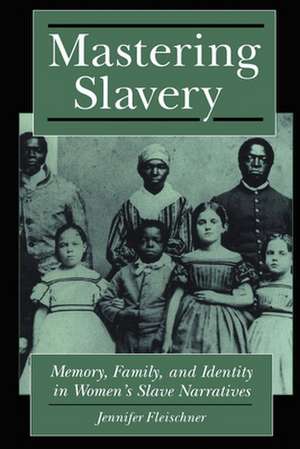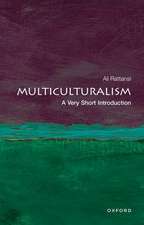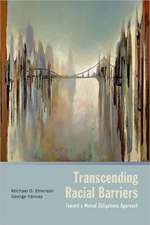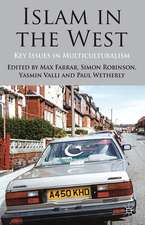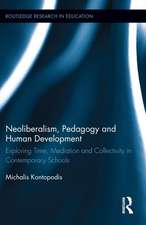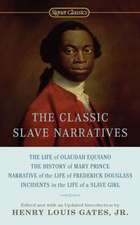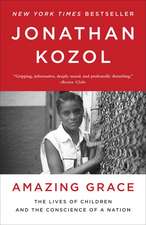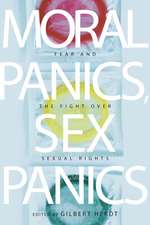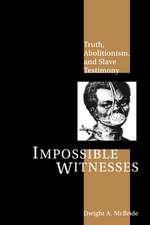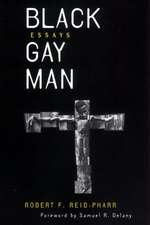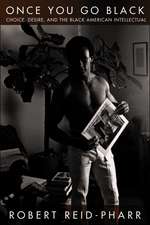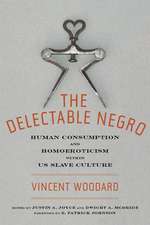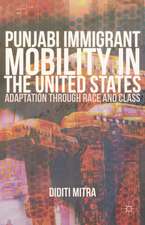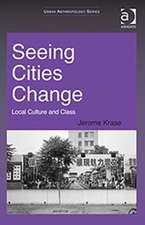Mastering Slavery – Memory, Family, and Identity in Women`s Slave Narratives
Autor Jennifer B. Fleischneren Limba Engleză Hardback – 30 iun 1996
| Toate formatele și edițiile | Preț | Express |
|---|---|---|
| Paperback (1) | 223.37 lei 6-8 săpt. | |
| MI – New York University – 30 iun 1996 | 223.37 lei 6-8 săpt. | |
| Hardback (1) | 524.38 lei 6-8 săpt. | |
| MI – New York University – 30 iun 1996 | 524.38 lei 6-8 săpt. |
Preț: 524.38 lei
Preț vechi: 681.01 lei
-23% Nou
Puncte Express: 787
Preț estimativ în valută:
100.34€ • 109.34$ • 84.55£
100.34€ • 109.34$ • 84.55£
Carte tipărită la comandă
Livrare economică 23 aprilie-07 mai
Preluare comenzi: 021 569.72.76
Specificații
ISBN-13: 9780814726303
ISBN-10: 0814726305
Pagini: 244
Dimensiuni: 163 x 234 x 24 mm
Greutate: 0.45 kg
Ediția:New.
Editura: MI – New York University
ISBN-10: 0814726305
Pagini: 244
Dimensiuni: 163 x 234 x 24 mm
Greutate: 0.45 kg
Ediția:New.
Editura: MI – New York University
Recenzii
"Fleischner offers intricate, multilayered readings of nineteenth-century women's writings about the institution of slavery. In treatments of autobiographical accounts by former slaves, Fleischner traces narrative paths of great personal loss and mourning for family, for home, for memory, and shows how these intriguing texts manifest their authors' negotations with identity and family, race and gender. Mastering Slaveryopens further the many difficult questions that women's texts about slavery raise concerning the relations of gender and race to social networks of power."
--Minrose C. Gwin, author of Black and White Women of the Old South: The Peculiar Sisterhood in American Literature, Professor of English, University of New Mexico "Mastering Slavery casts new light on the psychological dynamics of the slave narrative. Especially welcome is the way Jennifer Fleischner restores such writers as Elizabeth Keckley, Kate Drumgoold, and Julia A. J. Foote to their rightful place alongside Harriet Jacobs as founding mothers of a literary/historical/psychological tradition that reaches down to the present time."
--James Olney, Voorhies Professor of English, Louisiana State University "Though Nathan Huggins, Nell Painter, Gerald Early, and Deborah McDowell have called for psychological readings of the slavery experience, Jennifer Fleischner is the first literary critic to fully engage with the literature of the peculiar institution in this way. In her readings of Lydia Maria Child and Harriet Beecher Stowe, Harriet Jacobs and her little-known brother John, Elizabeth Keckley, Julia Foote, and Kate Drumgoold, Fleischner shows remarkable literary and psychological sensitivity that makes her novel interpretations compelling and at times moving. Mastering Slavery is an accomplishment of the first order."
--Werner Sollors, Henry B. and Anne M. Cabot Professor of English Literature and Professor of Afro-American Studies "Mastering Slavery is a stunning achievement, an instance in which a heretofore marginal literature is revealed in its astonishing complexity by a critical method not before applied to those very texts. The result is a study that will be heralded, I venture to say, both as one of the very best critical studies of African American literature and one of the best explorations of race and psychoanalysis. . . . Professor Fleischner is destined to emerge as a central figure in American literary studies, and in race and psychoanalytic studies."
--Henry Louis Gates Jr., W. E. B. Du Bois Professor of the Humanities, Chair, Afro-American Studies Department, Harvard University
--Minrose C. Gwin, author of Black and White Women of the Old South: The Peculiar Sisterhood in American Literature, Professor of English, University of New Mexico "Mastering Slavery casts new light on the psychological dynamics of the slave narrative. Especially welcome is the way Jennifer Fleischner restores such writers as Elizabeth Keckley, Kate Drumgoold, and Julia A. J. Foote to their rightful place alongside Harriet Jacobs as founding mothers of a literary/historical/psychological tradition that reaches down to the present time."
--James Olney, Voorhies Professor of English, Louisiana State University "Though Nathan Huggins, Nell Painter, Gerald Early, and Deborah McDowell have called for psychological readings of the slavery experience, Jennifer Fleischner is the first literary critic to fully engage with the literature of the peculiar institution in this way. In her readings of Lydia Maria Child and Harriet Beecher Stowe, Harriet Jacobs and her little-known brother John, Elizabeth Keckley, Julia Foote, and Kate Drumgoold, Fleischner shows remarkable literary and psychological sensitivity that makes her novel interpretations compelling and at times moving. Mastering Slavery is an accomplishment of the first order."
--Werner Sollors, Henry B. and Anne M. Cabot Professor of English Literature and Professor of Afro-American Studies "Mastering Slavery is a stunning achievement, an instance in which a heretofore marginal literature is revealed in its astonishing complexity by a critical method not before applied to those very texts. The result is a study that will be heralded, I venture to say, both as one of the very best critical studies of African American literature and one of the best explorations of race and psychoanalysis. . . . Professor Fleischner is destined to emerge as a central figure in American literary studies, and in race and psychoanalytic studies."
--Henry Louis Gates Jr., W. E. B. Du Bois Professor of the Humanities, Chair, Afro-American Studies Department, Harvard University
Textul de pe ultima copertă
In this book, Fleischner draws upon a range of disciplines, including psychoanalysis, African-American studies, literary theory, social history, and gender studies, to analyze how slave narratives in their engagement with one another and with white women's antislavery fiction-yield a far more amplified and complicated notion of familial dynamics and identity than they have generally been thought to reveal.
